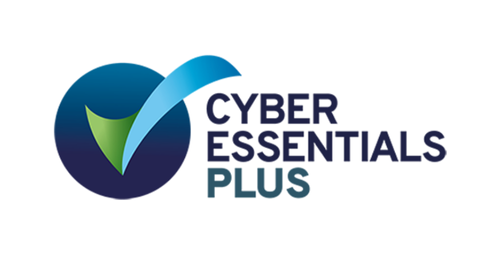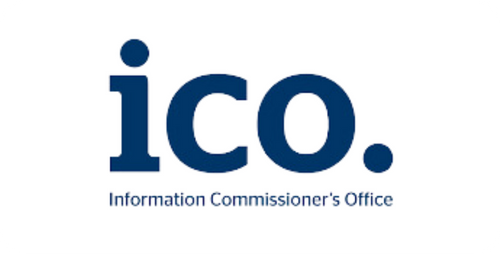Introduction
COMI Health Ltd is resolutely committed to upholding the highest ethical standards in its operations and ensuring that modern slavery and human trafficking have no place within its business or supply chains. Recognising that contemporary slavery manifests in complex and multifaceted ways, the company adopts a rigorous governance framework designed to identify, prevent, and mitigate the risks associated with exploitative labour practices. Although not statutorily required to publish a Modern Slavery Statement under the UK Modern Slavery Act 2015, COMI Health Ltd voluntarily embraces best practices, aligning its operational integrity with both national and international human rights principles.
The persistence of modern slavery, which includes forced labour, debt bondage, coerced employment, and child exploitation, necessitates a proactive and systemic approach. As a consultancy specialising in governance, compliance, and regulatory advisory services, COMI Health Ltd operates within a sector that is inherently lower risk concerning modern slavery exposure. Nonetheless, the organisation remains vigilant in evaluating vulnerabilities within its procurement strategies, supplier engagement, and third-party contractual arrangements. This statement delineates COMI Health Ltd’s structured approach to fostering ethical employment, fortifying compliance frameworks, and embedding robust due diligence mechanisms across all facets of its supply chain and operations.
Organisational Structure, Business, and Supply Chains
COMI Health Ltd is a UK-based consultancy providing governance and regulatory compliance solutions to NHS organisations and private healthcare providers. The company’s operational model relies predominantly on professional service providers, IT infrastructure vendors, office equipment suppliers, and administrative support contractors. As a non-manufacturing entity, COMI Health Ltd does not engage in high-risk supply chain activities such as raw material extraction, factory-based production, or distribution networks often associated with exploitative labour practices.
Despite this lower-risk classification, COMI Health Ltd acknowledges that ethical lapses can manifest in various indirect ways. To uphold operational integrity, the organisation mandates that all business partners comply with its Supplier Code of Conduct, adhere to UK labour laws, and align with international human rights conventions. The company actively evaluates suppliers to ensure full transparency regarding employment practices and ethical sourcing commitments.
Policies on Modern Slavery and Human Trafficking
To safeguard against modern slavery risks, COMI Health Ltd has established a comprehensive policy framework that governs all aspects of procurement, employment, and supplier engagement. The Ethical Procurement Policy enforces strict adherence to fair labour standards, requiring that all suppliers and subcontractors operate in legally compliant and ethically sustainable environments. The company’s Whistleblowing Policy provides a confidential mechanism for employees and stakeholders to report any concerns regarding unethical practices, ensuring that all disclosures are investigated and addressed in a legally protected manner. The corporate Code of Conduct establishes clear organisational expectations concerning human rights protections, anti-exploitation commitments, and corporate social responsibility obligations. Additionally, the Supplier Code of Conduct explicitly mandates compliance with UK employment regulations, fair trade principles, and anti-slavery frameworks, with contractual enforcement measures in place for any breaches.
Due Diligence Procedures
COMI Health Ltd employs a robust due diligence framework to assess and mitigate the risks associated with modern slavery within its business operations and supplier relationships. This framework includes comprehensive supplier risk assessments conducted prior to contractual engagement and at regular intervals throughout the business relationship. The organisation mandates third-party audits and compliance certifications for suppliers operating in higher-risk jurisdictions or industries. Furthermore, all supplier contracts incorporate legally binding clauses requiring adherence to anti-slavery and fair labour regulations. The company also maintains a continuous monitoring system that evaluates compliance adherence and flags any deviations from expected ethical standards.
Risk Identification and Mitigation
While COMI Health Ltd’s primary business activities fall within a low-risk category concerning modern slavery, the company recognises that vulnerabilities can emerge through subcontracting arrangements, outsourced service agreements, and external procurement practices. As such, the organisation has developed a structured risk assessment methodology to evaluate the ethical integrity of its supply chain. Suppliers operating in jurisdictions with a heightened prevalence of labour exploitation are subject to enhanced due diligence, including direct engagement and verification of employment policies. The company maintains an ongoing process of reviewing and refining procurement strategies to prioritise suppliers that demonstrate robust human rights compliance and ethical sourcing commitments.
Measuring Effectiveness and Compliance Metrics
To ensure the efficacy of its anti-slavery measures, COMI Health Ltd has instituted a set of performance indicators that facilitate ongoing assessment and continuous improvement. The organisation conducts annual supplier audits to verify adherence to ethical employment standards, ensuring that suppliers align with UK and international labour regulations. The company also systematically reviews whistleblowing reports to identify any concerns related to labour exploitation or unethical practices. Contractual obligations are periodically evaluated and renegotiated to integrate strengthened compliance provisions. In addition, stakeholder engagement is actively encouraged, allowing employees and external partners to contribute to the refinement of the company’s ethical employment strategies.
Employee Training and Organisational Awareness
Embedding a culture of compliance and ethical awareness is central to COMI Health Ltd’s anti-slavery strategy. The company has implemented an annual training programme that equips employees, particularly those in procurement and supplier management roles, with the knowledge required to identify and address modern slavery risks. Supplier engagement workshops are conducted to reinforce the company’s ethical standards and ensure that all third-party entities comply with contractual obligations concerning labour protections. Policy updates are issued regularly to reflect evolving regulatory frameworks, ensuring that organisational practices remain aligned with best-in-class governance principles. Additionally, all hiring practices are continuously reviewed to ensure full compliance with ethical recruitment guidelines.
Strategic Enhancements and Continuous Improvement
Recognising that combatting modern slavery requires a dynamic and adaptive approach, COMI Health Ltd has committed to enhancing its supplier monitoring capabilities, leveraging data-driven compliance tracking mechanisms to identify potential areas of risk. The company actively engages in cross-sector collaborations to support industry-wide advancements in anti-slavery enforcement. Additionally, the organisation is exploring the integration of artificial intelligence-driven risk assessment tools to improve supply chain transparency and strengthen due diligence processes. Legislative advocacy remains an integral component of the company’s long-term strategy, with COMI Health Ltd supporting regulatory advancements aimed at fortifying global anti-slavery enforcement mechanisms.
Board-Level Approval and Governance Oversight
This Modern Slavery Statement has been formally reviewed and ratified by the board of directors, underscoring the organisation’s commitment to maintaining ethical business practices as a foundational corporate governance principle. The statement is subject to an annual review process, ensuring that it evolves in alignment with emerging risks, regulatory developments, and best practice standards in the field of ethical labour governance.
Approval and Review:
Approved by: Mickael Iqbal
Position: Director
Date: 31/01/2025
Next Review Date: 30/01/2026



